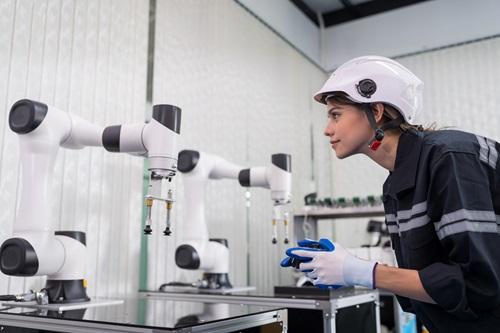
Female engineer training an AI powered robot. © Copyright CSIRO Australia, 2024-08-01
CSIRO, Australia's national science agency, and Google Australia have announced an expanded collaboration to advance the use of artificial intelligence (AI) in scientific research.
As part of their ongoing five-year partnership, this initiative aims to accelerate the adoption of AI within the Australian research community through joint research, education, training and support activities.
Dr Stefan Harrer, CSIRO's AI for Science Program Director, highlighted that recent advances in generative AI technology have opened up new possibilities for researchers.
"Narrow AI, designed for specific tasks, has long been used effectively in science, such as the significant breakthroughs in protein structure prediction made by Google's AlphaFold model," Dr Harrer said.
"Generative AI has the potential to not only accelerate scientific discovery, but to transform it."
Prior to the advent of generative AI, developing scalable AI models for various scientific problems was a lengthy and challenging process, often limiting their accessibility to many researchers.
"With this shift in AI capabilities, we want to equip Australian researchers with the skills they need to take advantage of these advances," Dr Harrer added.
Dr Lizzie Dorfman, Product Lead for Science AI at Google Research, said: "We are continually inspired by the potential of AI to tackle big scientific challenges. At Google, our scientists and engineers are using AI to advance research in fields such as biology, chemistry and geosciences."
"We are committed to sharing these advances, as collaboration is key to scientific progress. We are excited to deepen our engagement with the Australian research community and expand our partnership with CSIRO."
The initiative is part of a wider collaboration established in 2021, which has already led to significant achievements such as automating the identification of invasive starfish on the Great Barrier Reef, mapping seagrass meadows to understand their carbon sequestration potential, and using AI to help conserve and restore endangered giant kelp forests.
